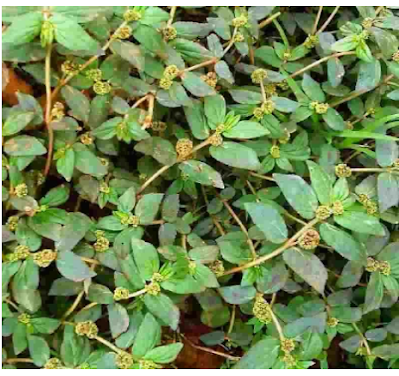Asthma is an inflammatory disease of the airways. It is a condition that mostly affect atopic individuals
In asthma, the airways are highly responsive to extrinsic and intrinsic stimuli causing air narrowing or reducing airways.
This allergic inflammatory response is characterized by an infiltration with eosinophils and other inflammatory cells.
In asthma, the inflammatory response (IgE-dependent mechanism) is activated inappropriately by these cells and is seen to be harmful rather than beneficial. Thus, the inciting stimulus persists and the normally acute inflammatory response becomes converted into a chronic inflammation which may have structural consequences in the airways.
Pathophysiology of Asthma
Activation of cells bearing allergen-specific IgE
Rapid activation of airway mast cells and macrophages which release
proinflammatory mediators
histamine, eicosanoids, and reactive oxygen species that induce contraction of airway
smooth muscle, mucus secretion, and vasodilatation
mediators induce microvascular leakage with exudation of plasma in the airways .
Acute plasma protein leakage induces a thickened, engorged, and edematous airways and
narrowing of the airway lumen
late-phase inflammatory reaction occurs 6 to 9 hours after allergen provocation
the recruitment and activation of eosinophils, CD4+Tcells, basophils, neutrophils, and
macrophages.
Airway Inflammation
Lymphocytes( Blood Soldiers)
There are two types of T-helper CD4+cells.
Type 1 T-helper (Th1) cells produce
IL-2 and interferon-γ(IFN-γ), both essential for cellular defense mechanisms.
Th2 cells produce cytokines
(IL-4, -5, -6, -9, and -13) mediate allergic inflammation.
IL-4 from Th2 cells promote IgE synthesis in B cells.
The IL-5 provides support for eosinophil survival.
possible Th1 cytokines inhibit the production of Th2 cytokines, and vice versa.
It is hypothesized that allergic asthmatic inflammation results from a Th2-
mediated mechanism
an imbalance between Th1 and Th2 cells.
Does hygiene contribute to asthma ?
Studies have shown that atopic individuals naturally
allow the allergic immunologic system (Th2) to develop instead of the
immunologic system used to fight infections (Th1)
first 2 years is important for alteration in the immune system.
Baby’s immune system is skewed toward Th2 cells
needs timely and appropriate environmental stimuli to create a balance
Support- a lower risk for asthma in
children on farms exposed to high levels of bacteria,
in those with a large number of siblings,
in those with early enrollment into child care,
in those with exposure to cats and dogs early in life,
in those with exposure to fewer antibiotics
Inflammatory Cells
MAST CELLS
Cells degranulate is responses to allergens releasing histamine.
Histamine induces smooth muscle constriction and bronchospasm
and plays a role in mucosal edema and mucus secretion
ALVEOLAR MACROPHAGES
to serve as “scavengers,
” engulfing and digesting bacteria
and other foreign materials
release platelet-activating factor, leukotriene B4, C4, D4
able to produce neutrophil/ eosinophil chemotactic factor
Symptoms of Acute Asthmatic Episode
1-Coughing
2-Wheezing — may be absent
3-Breathlessness — while walking or while at rest
4-Respiratory rate increased
5-Chest tightness
6-Chest or abdominal pain
7-Fatigue, feeling out of breath
8-Agitation
Increased pulse rate
9-Inability to participate in sports
Factor That Trigger Asthma Attacks
.Allergic reactions to environmental allergens such as pollens, molds, dust
mite or animal dander
Colds and viral respiratory infections
Exercise
Changes in weather, exposure to cold air or sudden temperature change
Irritants such as tobacco smoke, air pollution, paints and cleaning agents
Strong odors and/or perfumes
Herbal medicines for Respiratory System/Asthma treatment
1.Euphorbia hirta ( Australia Asthma plan t )
Prevents IgE in the blockage of the Beta - 2 receptors of pulmonary smooth muscle cells to causes asthma Prevents the release of inflammatory mediators and increase in oxidative stress
2-Boswellia serrata
(Frankincense). It Inhibit leukotriene
3-Desmodium abscendens
Anti-anaphylactic
property(EtOH & Aq)
Interfere with histamineinduced contractions, and
reduce the amount of
smooth muscle stimulating
substances released from
lung tissue.










0 Comments